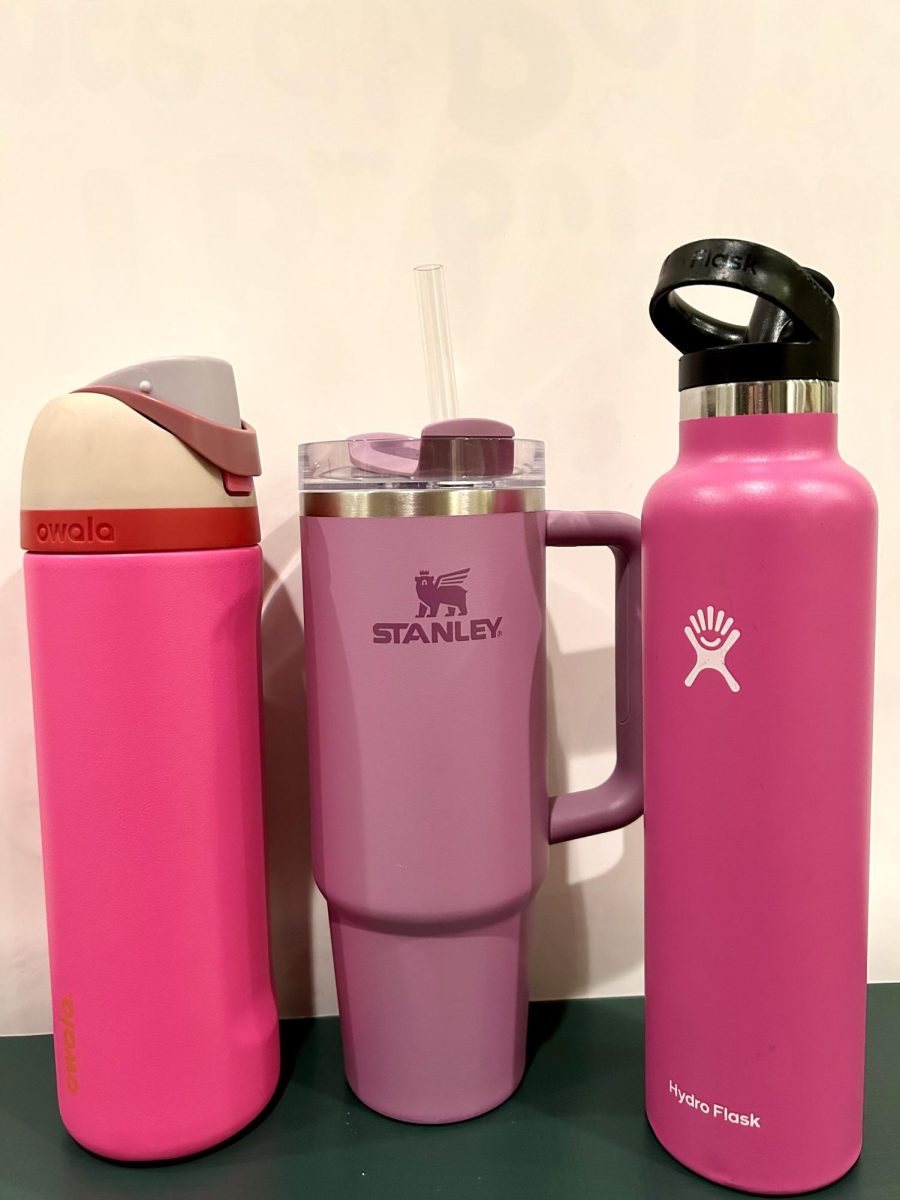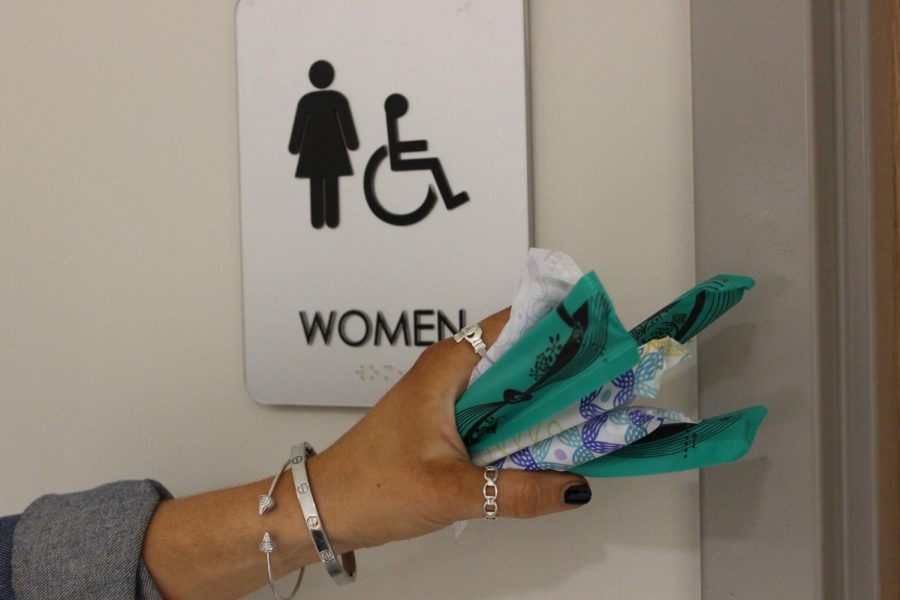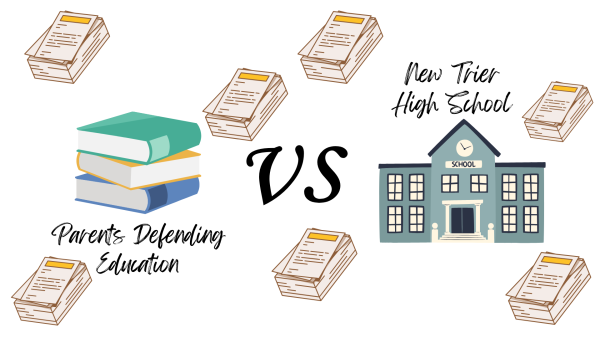New tampon legislation changes bathrooms
Female sanitary products will now be available for free
Women’s bathrooms in all Illinois public schools will provide free tampons, starting January 1, 2018 | Guthrie
October 27, 2017
Starting next year, all Illinois school districts and charter schools grades 6-12 will be required to provide feminine hygiene products in bathrooms to female students, for free.
The new legislation, which goes into effect Jan. 1, was sponsored by state Rep. Litesa Wallace, who compared this requirement to supplying hand soap and paper towels.
“There are issues that we have no control over. It’s a public health issue. It’s one that, I believe if applied to everybody, everyone would get on board,” she said.
At least half the population experiences the difficulties of periods, and this hopefully will assuage the unpredictability of period cycles that are often heightened during high school and teen years and will be beneficial to students when a period arrives early and a student doesn’t have a pad or tampon with her.
It escapes the complications that arise when buying them from the dispensers. Or, in the likely case that a student does not bring a quarter to the bathroom, she does not have to go back to her classroom to get one from her backpack or go to the nurse to get a free one–all under the pressure of possibly missing important class time.
School nurse Colleen Sheridan acknowledged, however, that it might not change much here, as tampon distribution at New Trier has functioned satisfactorily.
Tampon dispensers array the walls of most bathrooms providing tampons for 25 cents, and the health office distributes them for free.
Sophomores Nina Seals and Ellie Hanlon both said they think it will be beneficial for female students overall. But, they themselves don’t think it will affect them much.
Wallace, in sponsoring the bill, noted that this measure would be especially helpful to low-income students, who sometimes resort to using unsanitary paper substitutes or skipping school altogether.
She also points out that school districts that already make products available have noticed slight improvements in school attendance.
The taboo nature surrounding periods and feminine hygiene has caused female students to adapt and handle emergencies independently.
Tampons are not normally a topic of conversation, public or legislative.
“It’s interesting,” said junior William Bechtel. “I can see why they would make it free and why people would want that, but I do find it surprising given how this topic can be controversial.”
Junior Katie Busch, however, felt this is absolutely necessary.
Citing a recent experience she had just last week, when she did not have a tampon with her and neither did any of her friends, “It puts you in a really vulnerable position,” she said. “What do you want me to do? Walk around with blood on my pants?”
Regardless, Sheridan upholds that this is the type of thing that students shouldn’t have to adapt to.
“This is finally being treated as a necessity rather than a luxury by the state.”













































